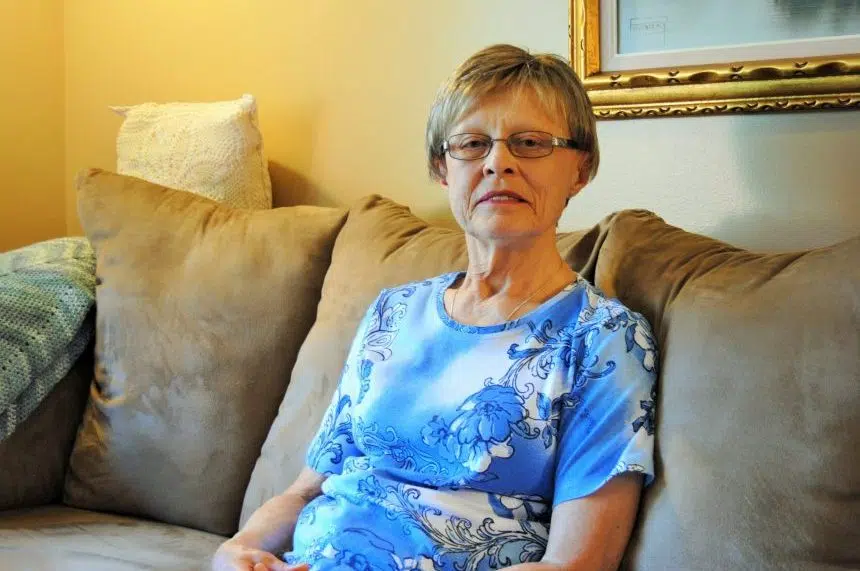She has spent more than 40 years caring for others as a nurse but now Judy Fielden is in the fight of her life.
Battling a second bout of ovarian cancer, the 73-year-old Regina woman wants the government to approve and fund the life-prolonging drug olaparib.
“It gives me hope. Ovarian cancer, it’s a killer, there aren’t many options for treatment,” Fielden explained. “It prolongs your time between recurrences.”
Olaparib, or Lynparza as it is known by the brand name, is on oral treatment provided to ovarian cancer patients who have already gone through surgery or chemotherapy – or both. It is one of the only effective treatment options for BRCA-mutated ovarian cancer.
Fielden was diagnosed with stage-3 ovarian cancer in September 2015. She had surgery followed by chemotherapy, which she finished in February 2016. But by December of that same year, the cancer had returned. She has just wrapped up her second bout of chemo.
“I’m frightened because it is a serious cancer,” Fielden said.
Frightened because statistics show within five years of being diagnosed with ovarian cancer, one in two women will have died, 85 per cent of them will see a recurrence. Having access to a drug like Lynparza may give Fielden more time with her two children and five grandchildren.
“It could be months, it could be years up to four years, five years, that’s precious time,” Fielden said. “I just want to be able to spend time with my family. They don’t live here, I’m a traveller, if it got to a point that I could travel out of the country I would.”
While Lynparza has been deemed safe by Health Canada, it has not yet been approved by the pan-Canadian Oncology Drug Review panel (pCODR).
In September 2016, pCODR did not recommend that Lynparza be added to the drugs funded by Canada because of the limited data that was provided by the manufacturer.
“They look at whether there is a net clinical benefit, the economic value, they take into account patient input and then the adoption feasibility from a systems perspective,” Darryl Boehm, with Saskatchewan Cancer Agency, explained. “They kind of do a very thorough and objective review.”
Typically provinces, and in turn the Saskatchewan Cancer Agency, base funding decisions on the recommendations provided to them by pCODR.
“Since pCODR has been incepted we’ve adopted every single one of their recommendations so I guess you could say we give it one hundred per cent of the weight,” Boehm said.
While it is under review by some provinces, Lynparza is not available to ovarian cancer patients in Saskatchewan, like Fielden. They can, however, pay for it themselves.”Seeing as it has been approved in 45 other countries and paid for it is extremely frustrating,” Fielden said. “At the price, $8,000 to $11,0000, most people cannot afford that.”
Another Lynparza study with far more detailed information and data is currently under review giving a measure of hope to patients in Saskatchewan.
“That study appears to be much more positive than the information that was available last year,” Boehm confirmed. “So the manufacturer has resubmitted to pCODR.”
The pCODR website shows the drug as being under review and indicates an initial recommendation is due to be delivered in August 2017.
Fielden can do nothing but sit, wait and hope.
“Myself and other people who have this, there are a lot of younger people who have it, deserve an honest look and some help,” Fielden demanded. “There is not much for us and it is cruel not to give us this.”







